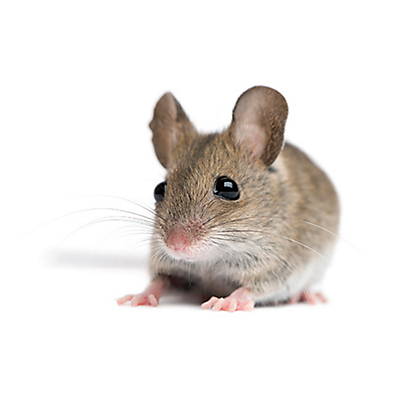When it comes to understanding and treating cancer, animals play a crucial role in scientific research. Various animals are used in laboratories to study cancer's causes, effects, and potential treatments. In this article, we'll explore which animals are commonly used for cancer research and why they are important to advancing our knowledge in this area.

Animals are used in cancer research for several reasons:
Biological Similarities: Many animals have biological systems similar to humans, making them valuable for studying how cancer develops and responds to treatments.
Controlled Environment: Researchers can control the environment and variables in animal studies, allowing for more accurate results.
Ethical Considerations: Animal studies help researchers test the safety and efficacy of treatments before moving on to human trials.

Why They're Used: Mice are the most commonly used animals in cancer research. Their genetic makeup is similar to humans, and they can be bred to have specific genetic mutations that mimic human cancers.
Types of Studies: Researchers use mice to test new drugs, study tumor growth, and understand how cancer spreads.
Why They're Used: Like mice, rats share many biological similarities with humans. They are often used for studying larger tumors and testing the long-term effects of cancer treatments.
Types of Studies: Rats are particularly useful for studying hormonal cancers, like breast and prostate cancer.
Why They're Used: Dogs naturally develop many of the same types of cancer as humans, making them valuable models for research.
Types of Studies: Canine cancer studies often focus on lymphoma and osteosarcoma. Additionally, dogs are used in research to find potential treatments that could work in both dogs and humans.
Why They're Used: Cats can develop specific cancers, such as lymphoma, which can provide insights into similar human cancers.
Types of Studies: Research on feline cancers can help develop new treatments that may also benefit human patients.
Why They're Used: Certain fish, like zebrafish, are used in cancer research due to their transparent embryos, which allow scientists to observe cancer development in real time.
Types of Studies: Researchers use fish to study the effects of drugs on cancer cells and how tumors develop.
Why They're Used: Non-human primates, like monkeys, are used for advanced studies due to their close genetic relationship to humans.
Types of Studies: They are typically used in later stages of research to assess the safety and effectiveness of potential cancer treatments before human trials.
Animals play an essential role in cancer research, helping scientists understand the disease and develop new treatments. Mice, rats, dogs, cats, fish, and non-human primates are among the most commonly used species, each offering unique insights into different aspects of cancer. While the use of animals in research raises ethical considerations, it remains a critical part of advancing medical knowledge and improving cancer therapies for both humans and animals. By understanding how cancer works in these animals, researchers can make significant strides in finding effective treatments and ultimately curing this complex disease.
Cancer is a common disease that affects many species, including humans. However, some animals appear to have a remarkable resistance to developing cancer. In this article, we’ll explore a few animals that seem to be less susceptible to cancer and discuss what makes them unique.
Elephants are known for their large size and intelligence, but they also have a fascinating trait: they have a significantly lower rate of cancer compared to humans. Researchers believe this is due to their possession of multiple copies of the TP53 gene, which plays a critical role in suppressing tumors. While humans have only one copy of this gene, Elephants-Are-Endangered.html">elephants have 20, allowing them to better protect against cancerous growths.
Naked mole rats are remarkable creatures known for their unique social structure and long lifespan. They are resistant to cancer, which has intrigued scientists for years. Researchers found that these animals have a unique form of hyaluronan, a substance that helps maintain cellular structure and function. This substance appears to prevent their cells from crowding together, which can lead to tumors.
Sharks are often considered ancient creatures, and they seem to have a natural resistance to cancer. Although there are rare cases of cancer reported in sharks, their immune systems are highly effective at detecting and fighting tumors. Some researchers believe that the cartilage in sharks may have anti-cancer properties, which has led to studies on shark-derived compounds for potential cancer treatments.
Some turtle species, particularly the box turtle, have shown a remarkable resistance to cancer. They have low metabolic rates and long lifespans, which may contribute to their ability to avoid developing tumors. Additionally, their immune systems can efficiently repair damaged DNA, further reducing the likelihood of cancer.
Ostriches are large flightless birds that also seem to have a lower incidence of cancer. Research has suggested that their immune systems are highly effective at identifying and eliminating cancer cells. Their unique immune responses could offer insights into potential cancer treatments for humans.
While cancer is a widespread issue affecting many animals, these species demonstrate unique biological traits that contribute to their resistance. Elephants, naked mole rats, sharks, certain turtles, and ostriches showcase how evolution has equipped some animals with powerful mechanisms to combat cancer. Studying these animals not only enhances our understanding of cancer biology but may also lead to the development of new prevention and treatment strategies for humans.
animal tags: Sharks
We created this article in conjunction with AI technology, then made sure it was fact-checked and edited by a Animals Top editor.